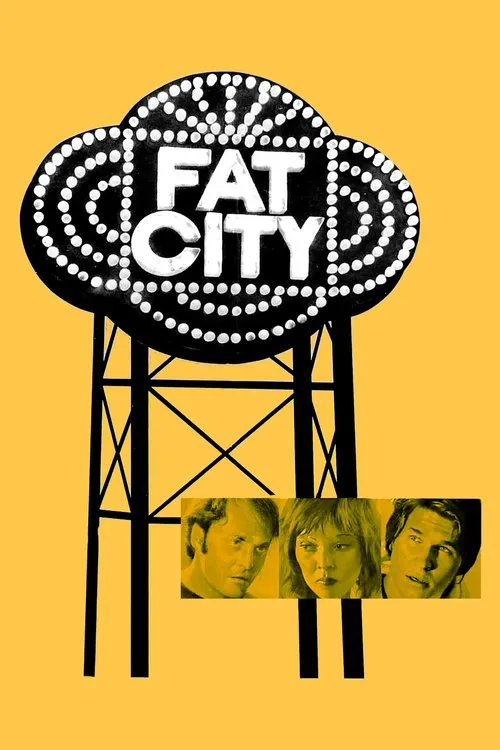Fat City

Plot
Fat City is a 1972 American drama film directed by John Huston, based on the 1969 novel of the same name by Leonard Gardner. The movie takes place in the 1940s in Stockton, California, focusing on the lives of two professional boxers, Billy Tully and Ernie Munger, navigating the harsh realities of their chosen profession. The film begins with Billy Tully (played by Stacy Keach), a former boxer who has given up his career after a series of unfortunate incidents left him with a broken nose, broken ribs, and a general feeling of disillusionment. Billy works as a maintenance worker at a local gas station, where he spends his days struggling to make ends meet and his nights reminiscing about his former life as a boxer. Enter Ernie Munger (played by Nat Bride Jr.), a young and ambitious boxer who seeks to follow in Billy's footsteps but has not yet faced the same degree of hardship. Billy and Ernie become acquaintances, and Billy serves as a mentor and guide for Ernie, sharing his knowledge and experiences of the boxing world. As Ernie's career begins to take off, with a string of winning fights and increasing notoriety, Billy's situation worsens. He struggles to find meaningful work, and his feelings of jealousy and inadequacy grow as he watches Ernie's star rise. Billy's past mistakes and self-doubt begin to resurface, threatening to derail his already fragile sense of self-worth. Despite their differences, Billy and Ernie maintain a complex and often contentious relationship. Billy's cynicism and skepticism are matched only by Ernie's enthusiasm and ambition, which further fuels the tension between them. The two men frequently engage in philosophical debates about the morality of boxing, the nature of fame, and the consequences of their respective choices. One of the central themes of Fat City is the struggle for identity and self-worth in the face of decline. Billy's failed boxing career and subsequent feelings of abandonment serve as a metaphor for the struggles of the working class, where individuals are often forced to accept menial or low-paying jobs as a means of survival. Ernie, on the other hand, represents the opposite end of the spectrum – the young and ambitious athlete who is determined to succeed, no matter the cost. Throughout the film, John Huston employs a series of vignettes and episodic scenes to convey the day-to-day struggles of the characters. From the rough-and-tumble atmosphere of the gas station to the dingy bars and cramped boxing gyms, the film provides a gritty and unflinching portrayal of life on the margins. The cinematography is raw and unpolished, with a muted color palette that serves to underscore the bleakness of the characters' surroundings. One of the key performances in the film is that of Stacy Keach as Billy Tully. Keach's portrayal of the broken and disillusioned boxer is both poignant and powerful, conveying the complexities of Billy's inner world through a series of expressive gestures and mannerisms. Nat Bride Jr. as Ernie Munger provides a compelling counterpoint to Keach's performance, injecting a sense of youthful energy and idealism into the proceedings. Fat City is a film that defies easy categorization. While it is often described as a "sports drama" or a "boxing movie," it is ultimately a more nuanced and complex exploration of the human condition. The film's themes of identity, ambition, and the search for meaning in a post-war world continue to resonate with audiences today, making it a powerful and thought-provoking work that lingers long after the credits roll.
Reviews
Recommendations




